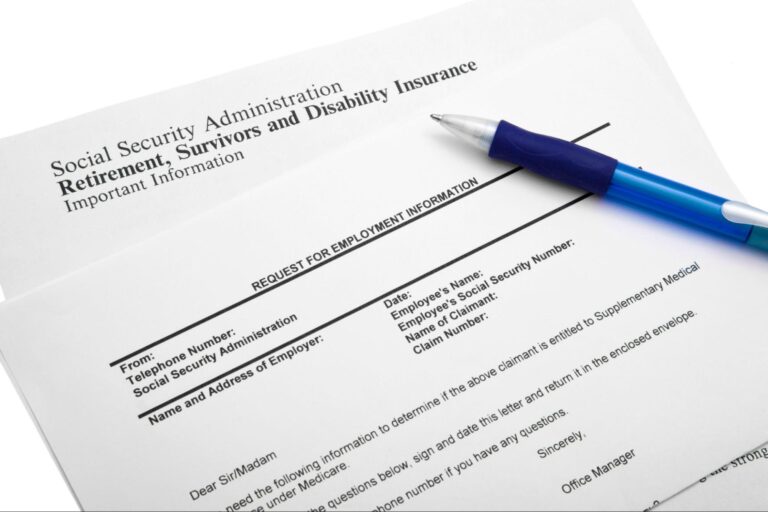WHAT TYPES OF DEATH BENEFITS ARE AVAILABLE AFTER LOSING A LOVED ONE?
The sudden loss of a loved one can leave surviving family members in a difficult financial position. As devastating as death can be, there’s also the added pressure of unpaid bills and funeral costs to think about. However, there may be some monetary support available through death benefits.
Here are some options that can help your family cope with the financial aspects of your loss.
Social Security Survivor’s Benefits
If your loved one paid into the Social Security system during the time they were working, you may qualify for survivor’s benefits. Outside of providing retirement funds for people who have stopped working, there are other aspects to Social Security. One of those is Social Security’s life insurance component.
While these benefits are not available to everyone in every circumstance, your family may be entitled to ongoing payments to help stabilize your finances.
Who is eligible for Social Security survivor’s benefits?
You may qualify for survivor’s benefits if you fall into one of the following situations:
- Your children are under 18 – Your spouse dies and you are still caring for their minor children
- You’re over 60 – Your spouse dies and you’re over 60 years old, regardless of your children’s ages
- You were dependent on your deceased child – You are over 62 years of age and were dependent on a child who died
- You’re divorced and your ex-spouse dies – You are now divorced but your ex died, depending on how long you were married
In addition to these eligibility requirements for ongoing survivor’s benefit payments, you will also get a one-time payment of $255 if you lose your spouse. However, you must have been living together at the time of your spouse’s death. If there is no surviving spouse, the one-time benefit payment may pass to an eligible child.
Pension Benefits
Did your loved one receive a pension from their employer? In some cases, it may provide survivor’s benefits. If your family member named a beneficiary when they set up their pension plan, you should be able to find this information in the policy and claim these benefits.
While 401(k) plans are the more common retirement plan for many companies today, public employees or others who have been with an organization for a long time will most likely have a pension.
Disability Insurance
If your loved one was unable to work and on long-term disability at the time they died, their disability insurance policy may provide death benefits. While it’s easy to assume that disability payments only continue for a person’s lifetime, the policy may have a designated beneficiary who is eligible for death benefits.
Annuities
Annuities are regular payments your loved one received as part of a legal settlement or through their retirement plan. Some annuities are explicitly paid during a person’s life and do not provide death benefits. However, other annuities provide a “right of survivorship.”
What is a right of survivorship?
When annuities have a right of survivorship, payments will continue for a set period of time to a designated beneficiary even if that person dies. For example:
- An annuity was set up to provide payments over 20 years.
- Your loved one passes away 10 years into that period.
- Annuity payments will continue to the beneficiary for the remaining 10 years.
Divorce and Child Support
As part of a divorce agreement, parents are required to show how their children will be provided for if one of the parents were to die before they reach the age of majority, which is 18 in most states. To satisfy this divorce requirement, many parents acquire a term life insurance policy. These policies are in effect for a set amount of time, so it’s possible they are still enforceable after the child is 18.
Parents can also choose to address child support in their will. They may legally express who will provide for the child if that parent were to die while the child is still a minor. You can access divorce decrees through the country courthouse where the divorce took place to see what type of insurance policy or child support was agreed upon to finalize the divorce.
Should I consider a wrongful death claim?
Another avenue to consider after your loved one’s death is the civil court system. If your family member’s death resulted from another person’s negligence or careless actions, you may qualify to bring a wrongful death case for compensation. The process is meant to make the victim’s family financially whole and hold the responsible party accountable for the loss.
You may be able to claim damages such as:
- Medical expenses your loved one incurred due to an accident
- Funeral and burial expenses
- Lost wages
- Pain and suffering
- Loss of companionship
If you’d like to learn more about filing a wrongful death claim and how it can help you get the compensation you and your family deserve, contact Kyle Bachus and the Elite Litigation Group of Bachus & Schanker. The team offers no-obligation consultations to help victims understand their rights and see what their case may be worth.
Sources:
Social Security Administration (SSA). If You Are The Survivor.





